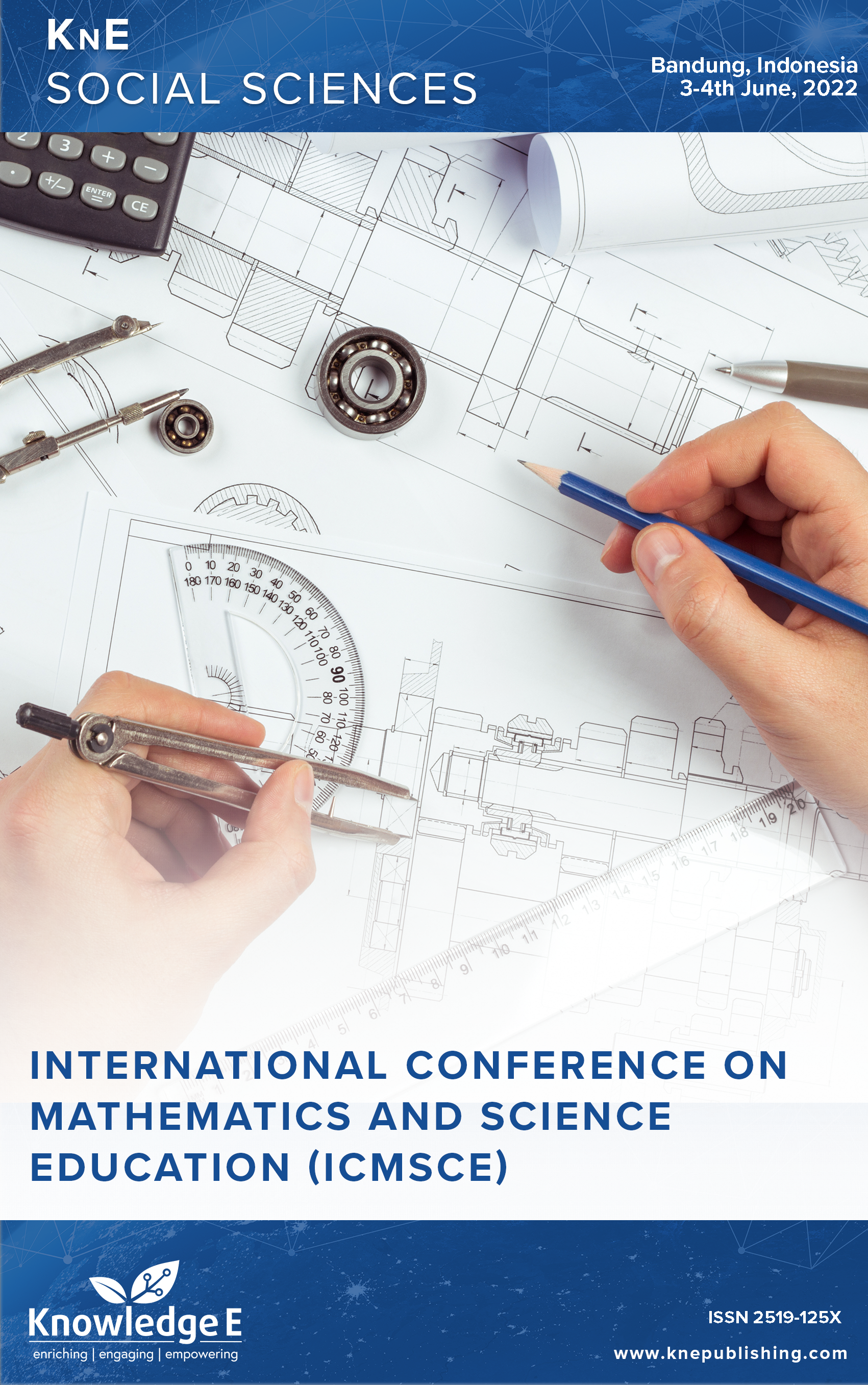Implementation of TPACK through Lesson Study: Pre-service Science Teachers' Initial Knowledge in an Earth and Space Science Course
DOI:
https://doi.org/10.18502/kss.v9i13.15927Abstract
Teaching and learning at school cannot be replaced by robots or technology. However, teachers who cannot adapt to technological developments will be unable to compete in the field. TPACK is an educational theory that discusses the teacher knowledge needed to integrate technology into education effectively. Teachers with TPACK skills cannot only prepare students with scientific knowledge, but they can also integrate technology into science learning. Therefore, the long-term goal of this research is to instil the TPACK aspect of pre-service science teachers in order to prepare teachers who can compete in the development of Industry 4.0. The research method was descriptive quantitative research, where the process of implementing aspects of TPACK through lesson study was explained clearly, as well as descriptions of meaningful numbers related to the initial TPACK abilities of pre-service science teachers. A random sampling method was used to select 62 pre-service science teachers who attended the earth and space science course in the science education program at Universitas Negeri Medan. The results of the study indicated that the TPACK ability level of pre-service science teachers was generally still low. It is hoped that this initial data can be a reference for researchers in implementing aspects of TPACK through lesson study in earth and space science courses.
Keywords: TPACK, Pre-service Science Teachers, Earth and Space
References
Hyndman B. Ten reasons why teachers can struggle to use technology in the classroom. Science Education News. 2018;67(4):41–2.
Selpia D, Purnawarman P. Teacher technology uptake in Indonesian EFL classes. Thirteenth Conference on Applied Linguistics; 2020. Atlantis Press; 2021. 96–101 DOI: https://doi.org/10.2991/assehr.k.210427.015
Darling-Hammond L, Oakes J. Preparing teachers for deeper learning. Harvard Education Press; 2021.
Basal A. English language teachers and technology education/ingilizce ögretmenleri ve teknoloji egitimi. Egitimde Kuram ve Uygulama. 2015;11(4):1496–511.
Voogt J, McKenney S. TPACK in teacher education: are we preparing teachers to use technology for early literacy? Technol Pedagogy Educ. 2017;26(1):69–83. DOI: https://doi.org/10.1080/1475939X.2016.1174730
Lyublinskaya I. Evolution of a course for special education teachers on integrating technology into math and science. Handbook of research on teacher education in the digital age. IGI Global; 2015. pp. 521–47. DOI: https://doi.org/10.4018/978-1-4666-8403-4.ch020
Niess ML, Gillow-Wiles H. Online instructional strategies for enhancing teachers’ TPACK: experiences, discourse, and critical reflection. Research anthology on developing effective online learning courses. IGI Global; 2021. pp. 326–48. DOI: https://doi.org/10.4018/978-1-7998-8047-9.ch019
Lindell RS, Franke D, Peak E, Withee T, Foster T. Meeting the needs of our future and in?service teachers: the development and implementation of a PER?based course to teach instructional strategies in astronomy. AIP Conference Proceedings. American Institute of Physics; 2006. pp. 23–6. DOI: https://doi.org/10.1063/1.2177014
Love DJ, Murty KS, Wilson FK, Schultz KL. An interdisciplinary Earth System Science (ESS) program for minority students at Jackson State University. AIP Conference Proceedings. American Institute of Physics; 1993. pp. 342–6. DOI: https://doi.org/10.1063/1.44397
Miller GP. Innovative interactive earth science courseware for middle and high schools. AIP Conference Proceedings. American Institute of Physics; 1993. pp. 347– 51. DOI: https://doi.org/10.1063/1.44398
Demirtas B, Mumcu F. Pre-service teachers’ perceptions of ICT and TPACK competencies. Acta Educationis Generalis. 2021;11(2):60–82. DOI: https://doi.org/10.2478/atd-2021-0013
Jannah R, Mulyani S, Ulfa M, Saputro S, Yamtinah S, Masykuri M. Investigation of chemistry preservice teachers’ understanding of Technological, Pedagogical, And Content Knowledge (TPACK). AIP Conference Proceedings. AIP Publishing; 2019. https://doi.org/10.1063/1.5139777. DOI: https://doi.org/10.1063/1.5139777
Susanti N, Mukminin A. The effects of TPACK instrument variables on teacher candidates in higher education. J High Educ Theory Pract. 2022;22(2):107–15. DOI: https://doi.org/10.33423/jhetp.v22i2.5041
Anci FF, Paristiowati M, Budi S, Fitriani E. Development of TPACK of chemistry teacher on electrolyte and non-electrolyte topic through lesson study. AIP Conference Proceedings. AIP Publishing; 2021. https://doi.org/10.1063/5.0041804. DOI: https://doi.org/10.1063/5.0041804
Nuruzzakiah N, Hasanuddin H, Artika W, Supriatno S, Rahmatan H. Competency analysis of Technological Pedagogical And Content Knowledge (TPACK) biology teachers. Jurnal Penelitian Pendidikan IPA. 2022;8(1):325–35. DOI: https://doi.org/10.29303/jppipa.v8i1.1166
Fahrurozi SK, Budiyanto C, Roemintoyo R. Pre-service teachers perspective in developing TPACK: Literature review. AIP Conference Proceedings. AIP Publishing; 2019. https://doi.org/10.1063/1.5139756. DOI: https://doi.org/10.1063/1.5139756

